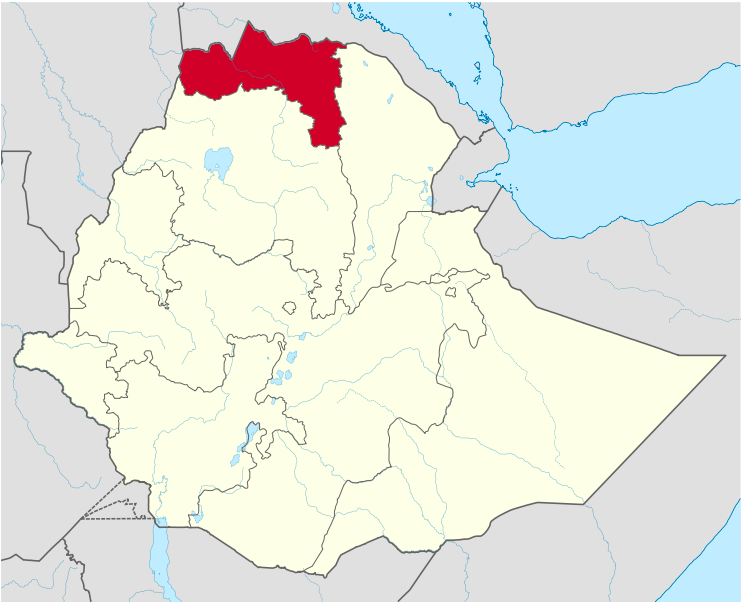
An Ethiopian Civil War: Conflict in the Tigray Region
Following a series of heavy losses this past month for the Ethiopian army, Ethiopia's prime minister Ahmed Abiy appealed for Ethiopian citizens to join the military in its fight against the Tigray People’s Liberation Front (TPLF) saying, “Now is the right time for all capable Ethiopians who are of age to join the defence forces, special forces and militias and show your patriotism.” Prime Minister Abiy's personal appeal came after the recent announcement by Tigrayan fighters that they had captured the key towns of Dessie and Kombolcha in the neighboring Amhara region which are of strategic importance for further southern advances towards Addis Ababa. Ethiopia’s Government has also declared a nationwide state of emergency effective in Addis Ababa for six-months, which will include the establishment of roadblocks, the disruption of transportation services, a strictly enforced curfew and the takeover of certain areas by the military. Anyone suspected of collaboration with the TPLF could be detained without a court warrant and those found to have violated the emergency could face 10 years in prison.
War erupted last year between the Ethiopian army and the TPLF, (the political party that controls the northern Ethiopian Tigray region) when forces loyal to TPLF, seized a military base in Tigray, igniting a conflict that has since killed thousands and forced more than two million to flee the region. The TPLF was created as a small guerrilla force in 1972. Although the primary base of support for the TPLF was and remains the Tigray tribe from the northern Ethiopian region of Tigray the TPLF has grown from its inception as an insignificant political organization to a mainstream fixture in Ethiopian politics. In 1994 the TPLF spearheaded the defeat of Ethiopia’s military dictatorship (called the Derg) and ruled as part of a political party called the EPRDF which as a conglomerate of 3 other smaller parties called ADP (Amhara Democratic Party), the ODP (Oromo Democratic Party) and the SEPDM (Southern Ethiopian People’s Democratic Movement) until 2018 when the 3 smaller political parties within the EPRDF came to an agreement to nominate Abiy as Prime Minister and form a new party called the Prosperity Party. This new alliance effectively ended the party known as the EPRDF leading to the sidelining of the TPLF from the government. After Abiy took power in 2018, he replaced the most powerful TPLF figures in Ethiopia, the army chief of staff Samora Yunis and the chief of intelligence, Getachew Assefa. Sensing the reduction in its power the TPLF refused to join Mr. Abiy’s Prosperity party, and tensions finally broke out into conflict between the federal government and the TPLF, which had withdrawn to its regional stronghold of Tigray.
Since June, the Ethiopian government has blocked the entrance to the Tigray region, including humanitarian assistance. Health facilities in Tigray have been destroyed, and widespread reports of sexual violence have emerged from areas controlled by the Ethiopian and Eritrean forces, including rape and sexual slavery. More than an estimated 400,000 people are famished, and the U.N. has appealed for humanitarian access and food assistance to avoid a catastrophe.
African and Western leaders called for an immediate ceasefire on November 4th after the Tigrayan advances towards the capital. Jeffrey Feltman, the U.S special envoy for the horn of Africa, arrived in Addis Ababa on November 4th, to urge the two parties to halt military operations and start ceasefire talks. Ethiopia has long been seen as a reliable ally to the USA, especially during its war on terror, with the two nations cooperating in the US fight against terrorist groups in Somalia. The US has backed this vital relation up financially, handing over $4.2bn in aid between 2016 and 2020.
Despite calls from world leaders for a national ceasefire a newly formed alliance of different factions of Ethiopian opposition parties (called the United Front of Ethiopian Federalism and Confederalism Force) was announced in Washington. The goal of this new organization is “to organize and totally dismantle the existing government, either by force or by negotiation … then insert a transitional government,” said Mahamud Ugas Muhumed, of the Somali State Resistance, one of nine paramilitary member groups who have crossed the border and joined with the Tigrayan’s in their struggle against the Abiy-led government. Although here are no easy solutions to halt the civil war in the near future, there are hundreds of thousands that on the brink of famine, and World leaders must show their willingness to rescue those citizens that starving because of Abiy’s siege and at the very least demand humanitarian access for the Ethiopian citizens suffering in that region, to avoid a humanitarian disaster of catastrophic proportions.
